Don't Void Your Coverage: Essential Maintenance and Modification Rules for Keeping Your BMW Warranty Intact
Understanding Your BMW Warranty Basics
Before we talk about what might void your warranty, it's crucial to understand what your BMW's warranty actually covers. Generally, BMW offers a New Vehicle Limited Warranty, typically for 4 years or 50,000 miles, whichever comes first. This warranty covers defects in materials or workmanship under normal use and service. It's designed to protect you from manufacturing flaws, not from wear and tear, neglect, or damage caused by accidents or misuse. Items like tires, brake pads, and wiper blades are usually considered wear-and-tear items and have separate, limited coverage or are excluded.The key takeaway here is that your warranty is a safety net for things that go wrong due to how the car was built, not how it's been driven or maintained (or not maintained). Always take the time to read your specific warranty booklet; it's the definitive guide to your coverage and often contains details specific to your model and region. Knowing these fundamental terms will be your first line of defense against accidentally voiding your coverage.
The Golden Rule of Maintenance: Stick to the Schedule
One of the most common ways owners unintentionally jeopardize their BMW warranty is by deviating from the prescribed maintenance schedule. BMW engineers have meticulously designed service intervals to ensure optimal performance and longevity for your vehicle. Skipping oil changes, delaying fluid flushes, or ignoring warning lights isn't just bad for your car; it's a direct route to warranty denial.Your BMW's Condition Based Service (CBS) system is your guide, alerting you to necessary services based on driving style and conditions. Adhere to these alerts! Furthermore, always use genuine BMW parts or OEM (Original Equipment Manufacturer) equivalent parts. While the Magnuson-Moss Warranty Act protects consumers from being forced to use only dealership services or proprietary parts, proving an aftermarket part's equivalency can be challenging if a failure occurs. The safest bet is to use parts that meet or exceed BMW's specifications. Always keep meticulous records of all service performed, including dates, mileage, what was done, and by whom. This documentation is your proof that you've upheld your end of the warranty agreement.
Oil Changes, Filters, and Fluids: The Lifeline of Your BMW
Let's zoom in on some specific maintenance items that are critical for your BMW's health and warranty. Engine oil is the lifeblood of your vehicle. BMW engines are sophisticated and demand specific types of synthetic oil (e.g., BMW Longlife-01 or Longlife-04). Using the wrong viscosity or type of oil, or extending oil change intervals beyond what's recommended by the CBS system, can lead to severe engine wear and, consequently, a voided powertrain warranty.Equally important are filters: oil filters, air filters, and cabin filters. Clogged filters restrict airflow or oil flow, forcing components to work harder and potentially leading to premature failure. Don't forget other vital fluids like brake fluid, coolant, and transmission fluid. While some BMWs boast 'lifetime' transmission fluid, BMW's official position has evolved, and many enthusiasts and independent shops recommend periodic changes, especially for high-performance models or higher mileage vehicles. If you choose to have these services performed by an independent shop, ensure they are reputable, use BMW-approved fluids, and provide detailed receipts. Remember, the Magnuson-Moss Warranty Act allows you to choose where your car is serviced, but the burden of proof is on you to demonstrate that the service was performed correctly with appropriate parts and fluids.
Modification Mania: What's Safe and What's Not?
Ah, the siren song of modification! Personalizing your BMW can be incredibly rewarding, but it's also where owners face the highest risk of voiding their warranty. The general rule of thumb is: if an aftermarket part or modification directly causes a failure of a warranted component, BMW can deny coverage for that specific failure. This is often referred to as the 'cause-and-effect' rule.Let's break down common modification categories:
Performance Modifications: This is the riskiest area. Engine tuning (ECU remapping/flash tunes), aftermarket turbochargers, superchargers, exhaust systems that alter emissions, and aggressive suspension modifications (coilovers, significant lowering) are prime culprits. If your engine blows a gasket after an ECU tune, BMW can argue the increased stress from the tune caused the failure, denying coverage for that repair. Similarly, if your suspension components fail after installing aftermarket coilovers, the warranty claim for those specific parts might be rejected.
Cosmetic Modifications: Generally safer. Things like aftermarket wheels (provided they don't impact suspension geometry or cause rubbing), body kits, window tints, and interior trim upgrades typically don't affect your warranty, as long as they don't interfere with the vehicle's operation or safety systems. However, be cautious with anything that requires cutting into wiring harnesses or significantly altering structural components.
Electronics and Lighting: This can be a gray area. Aftermarket stereo systems, alarm systems, or non-OEM lighting can sometimes lead to electrical gremlins. If an electrical issue arises and it can be traced back to an improperly installed aftermarket electronic component, that specific repair may not be covered.
Tips for Modifying Smartly and Staying Covered
While the threat of voiding your warranty might seem daunting, it doesn't mean you can't personalize your BMW. You just need to be smart about it.Firstly, always consult your BMW dealership or a trusted BMW specialist before undertaking any significant modifications. While their advice might be conservative, it can help you understand the potential risks. Some dealerships are 'mod-friendly' and might even offer to install certain aftermarket parts themselves, potentially easing warranty concerns.
Secondly, choose reputable aftermarket parts. There's a vast difference between a cheaply made eBay part and a high-quality component from a well-known brand like Akrapovič, KW, or Dinan (which often comes with its own supplemental warranty). Research thoroughly and read reviews.
Thirdly, consider retaining your original parts. If a warranty issue arises, you can revert your vehicle to stock form. This makes it harder for BMW to deny a claim and might even save you money if you need to submit the car for a repair that would have been covered pre-mod.
Finally, understand that the burden of proof often lies with the manufacturer to demonstrate that your aftermarket modification caused the failure. However, proving this can be challenging and time-consuming, so it's best to avoid situations where such a dispute might arise.
Documentation is Your Best Friend
We've touched upon this already, but it bears repeating: comprehensive documentation is your absolute best friend when it comes to protecting your BMW warranty. Treat every piece of paper related to your car as precious.Service Records: Keep every invoice, receipt, and work order from every service appointment, whether it's performed at a BMW dealership or an independent mechanic. These should detail the date, mileage, parts used (with part numbers), fluids, and the labor performed. Create a dedicated folder, digital or physical, for these documents.
Parts Receipts: If you purchase parts yourself for DIY maintenance or modifications, keep the receipts. This proves where the parts came from and can help establish their quality.
Modification Records: If you do modify your car, keep detailed records. Take 'before' and 'after' photos. Document the specific parts installed, the date of installation, and by whom. If you have tuning software, save versions or details of the tune. This can be crucial if a 'cause-and-effect' dispute arises, allowing you to clearly outline what was done.
Conclusion
Owning a BMW is an unparalleled experience, and protecting your investment, including its valuable warranty, ensures you can enjoy your 'Ultimate Driving Machine' for years to come without unexpected financial burdens. By understanding the basics of your coverage, diligently following the recommended maintenance schedule, using appropriate parts and fluids, and being thoughtful and informed about any modifications you choose to make, you'll significantly reduce the risk of voiding your warranty. Remember, knowledge is power – read your warranty booklet, keep meticulous records, and always prioritize the long-term health and integrity of your magnificent BMW. Drive smart, drive safe, and keep that coverage intact!Where can I find my VIN?

Related Topics
- Decoding the Ford Warranty: The 3-Year/36,000-Mile Breakdown
- Selling Your Ford? The Simple Steps to Transferring Your Ford Protect Plan (and Why It Adds Resale Value)
- Tuning and Aftermarket Mods: Will You Void Your Ford's Warranty? (The Magnuson-Moss Act)
- Power Stroke Protection: The 5-Year/100,000-Mile Ford Diesel Engine Warranty Decoded

